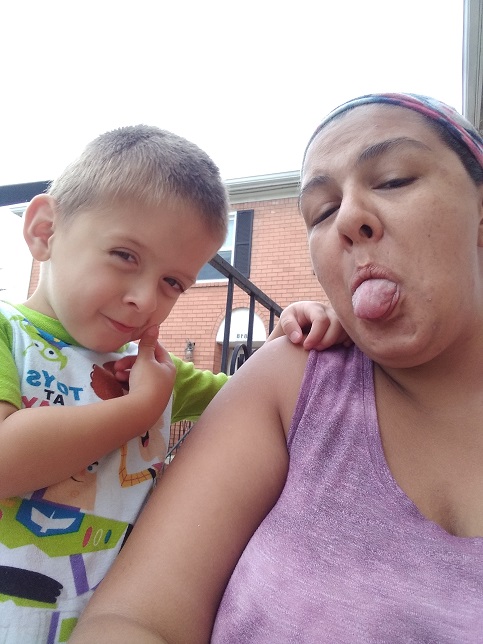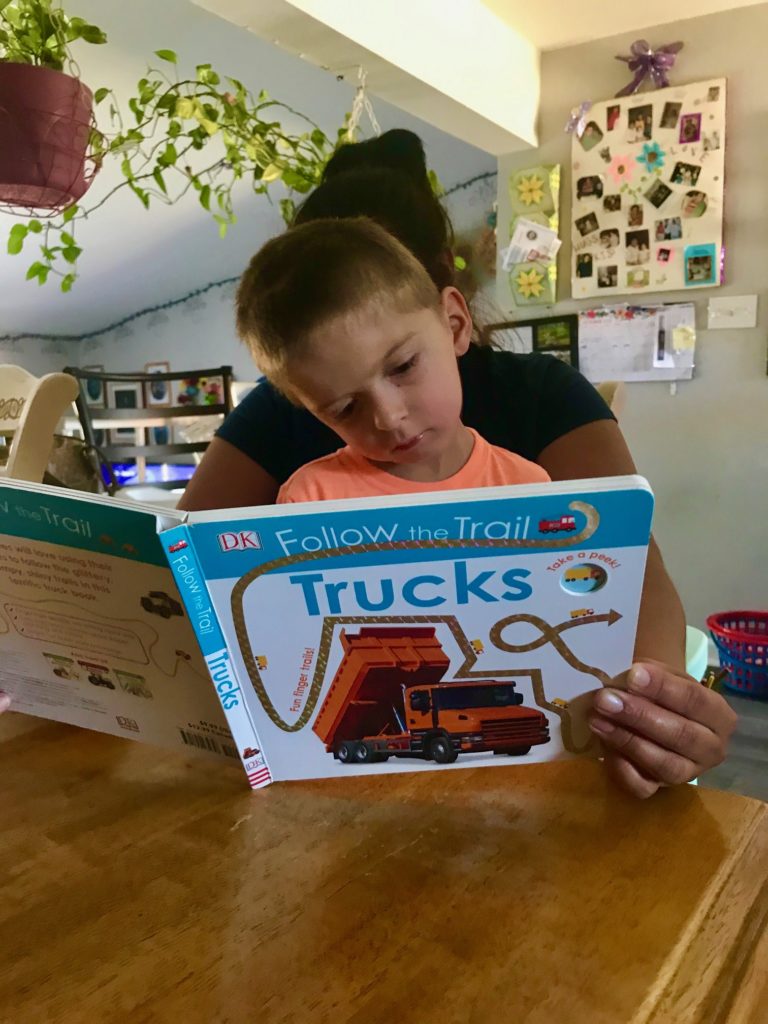Teaching the Teacher; Early Intervention Isn’t Just for the Child
Craniosynostosis – a word Teresa never thought would be in her vocabulary, much less a part of her baby boy’s life. Teresa’s son, Elias, was born at 31 weeks of age and weighed just 3lbs 13oz. Elias was diagnosed with left craniosynostosis; which means some of the joints in his skull fused before his brain could finish forming. Teresa and Elias went through many ups and downs throughout his first year of life but at age one Teresa knew it was time to begin preparing Elias for reconstructive skull surgery. “He did very very well and made a full recovery within almost two weeks with only four days of hospitalization,” said Theresa. “This was a very scary time for all of us!“
As a new parent, you expect your child to be born perfectly healthy. Never do you think your baby will be faced with the alternative–a life filled with challenges because of significant disabilities, visual impairments and more. It can be terrifying because it wasn’t expected. It’s not that you don’t love the baby you have because you do–and very much so. It’s just you may mourn the loss of the baby you were expecting all while learning how to raise a child who doesn’t learn like you as a typically sighted parent. Your mind may fill with ‘what ifs’ about your child’s future and how he or she will grow alongside your family and friend’s children. Theresa shared, “Through Elias’ first years I really began to worry about if he was going to keep up with other kids his age due to his Developmental Delay.” Luckily, this is where VIPS steps in to guide parents through the uncertainty.
“I myself would not know how to help my son if it weren’t for these ladies and their knowledge,” said Theresa. Melissa Barrick, Elias’ VIPS OTR and Blind/Low Vision Specialist went into Elias’ home and helped give small hints as to ways Theresa could position objects or where to place something on the table to maximize Elias’ use of his vision. It is through instruction, resources, and advice that VIPS teachers and interventionists give parents knowledge and hope for their child’s future. Yes, their child may learn differently than “typical” children, but they WILL learn and develop in their own way–they just need a parent to be willing to learn alongside them.
Early intervention is about guiding children in their first years of life to reach developmental milestones and teach them how to adapt to the world despite their disabilities. However, without the parent also learning how to implement strategies to help their child learn and adapt, it’s very difficult for a child to thrive. Essentially, early intervention is just as much about teaching the parent as it is teaching the child. VIPS recognizes this as we equip parents to be their child’s greatest advocate, their first and BEST teacher.
Teresa is now hopeful for Elias’ future, which just a couple of years ago seemed so bleak and unknown. Elias is in the process of aging out of the VIPS program because he’s turning three but will soon be starting Pre-K. Not only are vision services unnecessary as he enters school, but he also scored in the “average” range for his age group meaning he is on track with his “typically” developing peers. “So many different ways [Melissa] helped us I couldn’t thank her enough,” said Theresa!
We understand that not every early intervention path will lead to the same level of progress but every child deserves the chance to reach their highest potential. And for parents, well Teresa is just one example of how hope can lead to powerful things thanks to the empathetic ears, resources, and knowledge our teachers and interventionists give to the families VIPS serves. We are proud of Elias and his mom and we thank them for sharing their story with us. We’d also like to thank our amazing team member, Ms. Melissa for being right alongside Elias and Theresa on this journey.


